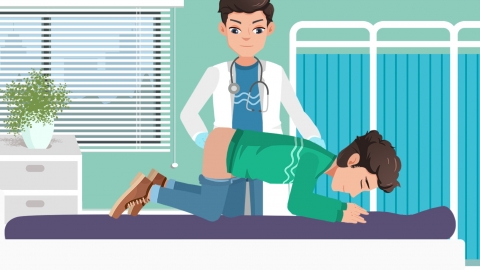Is it serious if rectal prolapse requires manual repositioning?
Rectal prolapse refers to the protrusion of the rectum. If the rectum has to be pushed back manually, it may be a grade II or lower prolapse, which can be temporarily relieved by manual reduction. This condition is serious but does not constitute an urgent surgical indication. If it is grade III or higher prolapse or accompanied by other severe symptoms, manual reduction alone should not be solely relied upon, and timely medical consultation is necessary to implement further treatment measures. Detailed analysis is as follows:

In cases of grade II prolapse, with a prolapsed rectal length of 4-8 cm, patients usually need to manually push the rectum back after defecation. Although this condition indicates a relatively severe prolapse affecting the patient's normal life, it is not yet an urgent condition requiring immediate surgery. Manual reduction can temporarily relieve discomfort symptoms. At the same time, patients should actively adjust their lifestyle habits, such as maintaining regular bowel movements, avoiding prolonged sitting or standing, and performing anal lifting exercises to strengthen the contraction of the anal muscles, which helps prevent further worsening of rectal prolapse.
If it is grade III or higher rectal prolapse, the rectum might protrude even during coughing, exertion, or standing, and it is difficult to push back manually or tends to recur after being pushed back. This is a more severe condition requiring immediate medical attention and surgical treatment. Especially when the prolapse is accompanied by severe symptoms such as pain, bleeding, or fecal incontinence, or when the patient is elderly or in poor physical condition and cannot tolerate surgery, timely medical consultation is necessary. Surgical treatments such as rectopexy can fix the prolapsed rectum to surrounding tissues to restore normal anal function.
Patients with rectal prolapse should seek timely medical attention, avoid excessive straining during bowel movements, maintain regular bowel habits, increase dietary fiber intake, drink plenty of water, avoid prolonged sitting or standing to reduce anal pressure. Additionally, regular pelvic floor muscle exercises can strengthen pelvic floor support and help prevent recurrence of rectal prolapse.




